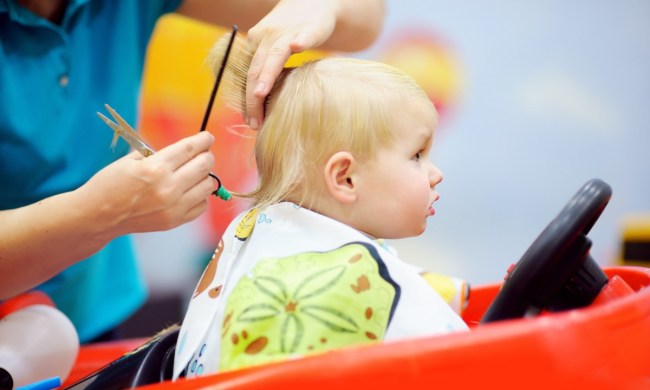Just like adults mindlessly chew at their fingernails, so do kids. It might be a nervous habit — or a “grooming” activity they turn to in moments of boredom. More often than not, they don’t even realize when they are doing it.
It could be an unconscious go-to if they are worried about taking a test, thinking about a situation with a friend, or just watching a brain-numbing video on YouTube.
Generally speaking, nail-biting is no big deal and fairly harmless; you might consider having some patience and wait to see if this phase passes. However, if finger-chomping hangs in for the long haul (or if they’re doing damage to their cuticles and nail beds), you’ll want to take some simple steps to nip this habit in the bud. Here’s what you can and should do.

How to stop kids from biting nails
If you’re ready to help your child stop this habit, you’ll want to take a gradual approach. Progress can be slow; remember, your kiddo isn’t really doing this on purpose — so show empathy and have patience, and keep these steps in mind:
Step 1: Talk about it
More important than figuring out how to stop a bad habit is learning why it’s happening in the first place. If your child is nail-biting as a means of channeling their nervousness, you will want to understand the root of their anxiety. Don’t push; just try to keep the lines of communication open. Whatever you do, avoid scolding or reprimanding. This isn’t a child being naughty, after all; this is your child being human. Moreover, too much negativity from you could backfire, fuel your kid’s anxiety, and cause their nail-biting habit to worsen.
Step 2: Cut those nails
If your child keeps trying to nibble on their nails, you will want to make sure they are trim and tidy. The reality is: You can’t chew on something that’s not there. What’s more, this will ensure that their nails remain clean and free of bacteria and jagged edges, so there’s less yuck for them to potentially suck on.
Step 3: Find a replacement and shift their focus
Your child just might need something else to focus on. Try a few alternative options; they can channel their “nervous” energy with a stress ball, Play-Doh, or another tactile option. Even rubbing a rabbit’s foot might do the trick. If it seems like they’re more drawn to something chewable, try giving them a bowl of carrot sticks (if age-appropriate) or another healthy snack to crunch on.
Step 4: Help them notice
Your child is probably not aware of how often they are putting their fingers to their mouth. To this end, you’ll want to work with them to make them more cognizant of the habit. Find a subtle, nonabrasive way to clue your child in that they’re, once again, biting their nails. Create your own secret language — tap their knee or come up with a clever code word. As you begin to remind them, they’ll start to be better at recognizing it themselves.
Step 5: Use a bitter coating
If your other attempts fail, you could turn to a bitter-coating polish. You apply this to your child’s nails, and they will get a not-so-delightful (and sour-tasting) reminder every time they mindlessly try to nail bite. Of course, you should not spring this on your kid as a surprise. Remember, you want to talk through the options. Let your child know that this is not a punishment; this is something you’re trying to do together.
Step 6: Reward their efforts
Overcoming a habit like nail-biting is no easy task — especially since it’s something that’s happening without thought or premeditation. It’s an ingrained behavior, and that makes it particularly difficult to stop. So when you do have early success, celebrate those moments. Create a reward system and mark the milestones as you continue your joint efforts. Did your child go a whole day without biting their nails? This warrants a prize! Figure out the system that works for you and motivates your child to keep going.

When to be concerned
If your child’s nail-biting leads to physical concerns — chipped teeth, ingrown nails, damaged cuticles, or worse — you may want to talk to your child’s pediatrician. And if you suspect that the habit is a result of anxiety, it’s never a bad idea to find a professional your kid can talk to. Anxiety is a part of growing up, but finding healthy coping mechanisms can help your child face big and small challenges more readily.
As you know, many grown-ups still bite their nails. It certainly isn’t the best habit, but it’s also not the worst. You can certainly try our tips on how to stop your child’s nail-biting, but keep age in mind and remember to prioritize communication above all else. If you keep at it — slowly but surely — your kiddo will become more aware and will more likely want to work with you to curb the habit.


